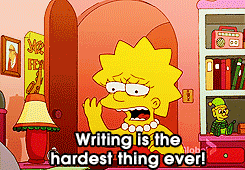As a senior English major, I’ve written so many research papers that I’m not even fazed by them anymore.
Professor wants eight to 10 pages and at least 12 sources? Pssh—I’ve got this! But I wasn’t always this confident in my writing abilities.
When I was a freshman and looking at the assignment description for my first research paper, I didn’t quite know where to begin.
Lucky for you, though, I’m going to share with you the strategies I’ve learned over the years.

1. Start researching early
Despite its sketchy reputation, Wikipedia isn’t a bad place to begin. You can get general ideas from a Wikipedia page, but you’ll want to do your real research at the Krueger Library. In addition to thousands of books, students also have access to a ton of scholarly journals and online databases. JSTOR, Academic Search Premier and ScienceDirect are some of the more popular databases.
If the thought of diving into databases overwhelms you, ask a librarian for help. Each academic department has a librarian who’s an expert in that field and can help direct your research.
Researching is the longest step in the writing process, so give yourself plenty of time to find the right sources you need.

2. Outline, outline, outline
You might be able to write a reflection paper without a clear idea of where you’re heading, but that won’t work with a research paper.
You need to outline—whether it’s official with roman numerals or just a basic sketch—so you know how you’re getting from claim A to claim B and finally to conclusion C.
Develop a working thesis and map out your main points. Start picking out good quotes from your sources and file them under their respective topics. This will help you later when you turn this outline into full-fledged paragraphs.

3. Write your first draft
Now, it’s very easy to get swept up in all the research, but at some point you’ve got to pull your head out of the books and put your fingers to the keyboard. Carve out a good chunk of time and go at it.
Don’t worry about getting the transitions or spelling totally correct at this point. You just need to figure out what you’re even trying to say about your subject.
I usually give myself at least two or three hours because once I’m in the zone, I don’t want to stop until it’s done.
Pro tip: After expending all that brain power, take a nap or play a game on your phone to relax and recharge.

4. Revise, and revise again
This is NOT the step to check for proper use of commas and misspellings (that comes a bit later). Revising is taking those rough sentences you furiously typed into a Word doc and making them into coherent paragraphs with good sentence flow and an academic vocabulary.
Once you have each paragraph looking pretty good, take a look at your essay as whole.
- Do you stick to your thesis throughout, or do you wander off-topic?
- Do you have enough explanation about each main point, or is there an obvious hole in your argument?
Answering these types of big-picture questions honestly may mean that you have to re-write half your essay or go back to the library for yet another stack of sources, but this is why you started writing the paper early in the first place.

5. Double—no, triple—check your citations
You don’t want to get caught with plagiarism, even accidental plagiarism like forgetting to include the author’s name in a paraphrase.
Professors take this issue very seriously and most have a policy that if you plagiarize you’ll fail the course or even get dismissed from WSU.
The Purdue Online Writing Lab is a good resource for all things MLA, APA and CMS. If you’re going into a liberal arts field, do yourself a favor and purchase The Publication Manual of the American Psychological Association or the MLA Handbook for Writers of Research Papers, depending on your major. Not to be sacrilegious, but these books will be your Bible for the next few years.

6. Proofread carefully
Proofreading is an often overlooked step, usually because you’re pressed for time to simply finish, but it’s crucial if you want to avoid embarrassing mistakes like misspellings, dropped words, and misplaced commas.
Don’t rely on spellcheck to take care of it for you. You need to go through your paper line by line to make sure you catch those pesky “it’s” and “its” or “their” and “there” and “they’re”.
Pro tip: Read your paper out loud. This tends to make it obvious when the flow of a sentence is off or there’s punctuation missing. It may be weird at first, but just do it.
And there you have it. Those are the six steps to writing a research paper.
If you’re struggling at any point in this process, I encourage you to visit the Writing Center, a free tutoring service for writers at all skill levels and any writing assignment. These tutors are trained to help you work through the worst writer’s block and the trickiest of thesis troubles.
Trust me, I was once a writing tutor and have used the Writing Center myself on more than one occasion. Soon enough, you won’t feel like this anymore:

– Updated by Hailey Seipel, 08/25/2021